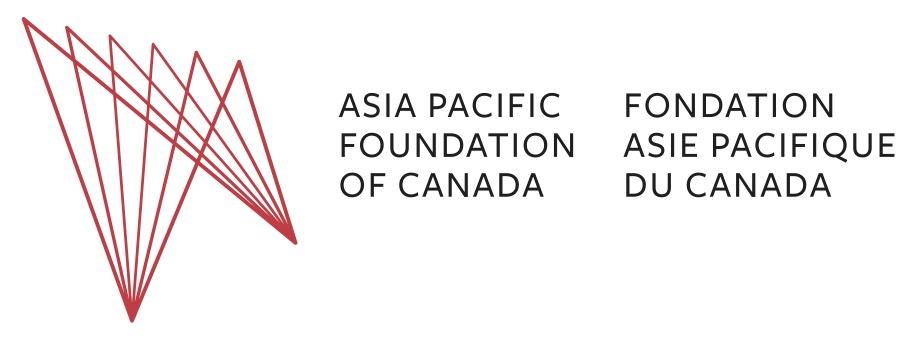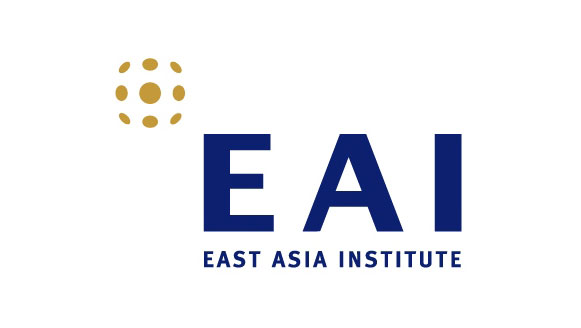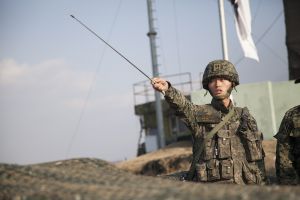This joint report examines the public opinion of changes taking place in the Asia-Pacific, including mutual concerns and competing visions, in order to make better-informed policy decisions.
Executive Summary
With rapidly evolving developments both within Northeast Asia and across a range of trans-Pacific relations more broadly, the countries of the region are encountering an increasingly demanding security environment. North Korea’s nuclear program, Chinese assertiveness in the South China Sea, and territorial disputes between many of the key regional actors all contribute to an uncertain and unstable regional security outlook. At the same time, these Asia-Pacific nations face some common global challenges, including climate change, terrorism, and nuclear proliferation. Countries in and around the region must carefully balance national challenges with regional interests.
Against this backdrop, the Chicago Council on Global Affairs partnered with the Lowy Institute (Australia), the Asia Pacific Foundation (Canada), Dataway Horizon (China), Genron NPO (Japan), and the East Asia Institute (South Korea) to conduct a regional public opinion poll based on varying sets of shared questions in each country. The goal is to better understand how the publics of each country view the changes taking place in the Asia-Pacific, and to better understand mutual concerns and competing visions in hopes of creating better-informed policy decisions.
It is important to note that all surveys in this report were conducted in 2016 prior to the election of Donald Trump as the president of the United States. His first few weeks have proven controversial, and may very well have shifted some of the findings in this poll. However, this underlines the importance of continuing to conduct multilateral polls in the region to monitor how public opinion has shifted at a time of increased uncertainty in the region and around the world.
Key Findings
Much discussion in the Asia-Pacific centers on the rise of China and the response of the United States. As the regional survey results make clear, countries around the Asia-Pacific feel the pull of both American and Chinese influence.
- While Americans and Australians see the US as more influential than China, Chinese see the two nations as roughly equal in terms of global influence.
- The United States is widely viewed as more militarily powerful than China, with majorities of Americans (50%), Chinese (54%), and Japanese (78%)—and a plurality of Australians (43%)—naming the US the stronger military power.
- There is less consensus on American economic power. Chinese (51%) and Japanese (61%) publics say the US is stronger than China economically, but Americans (38%) and Australians (40%) tend to say China’s economy is stronger. This sense of economic insecurity, exacerbated by anti-China rhetoric from the incoming administration, could alter American views of other aspects of the Sino-American relationship.
Despite the evolving competition for regional influence between the US and China, publics around the Asia-Pacific see their bilateral relationships as generally stable or improving—though there are several important exceptions.
Americans largely see their relationships around the region as stable, with majorities saying US relations with Australia (75%), Canada (69%), and South Korea (58%) are staying about the same, and a plurality (46%) say the same about Sino-American relations.
Matching those views, relatively few respondents in any country polled say that their relations with the United States are worsening. Majorities of Australians (68%), Chinese (61%), and South Koreans (60%), and a plurality of Canadians (39%), say that relations with the US are staying about the same.
Views from around the Asia-Pacific are also fairly optimistic in assessing the respective countries’ bilateral relationship with China. Pluralities in Canada (46%) and Australia (49%) say that relations are staying about the same, and a plurality of South Koreans (48%) say that relations with China are improving.
Along with expressing warm feelings toward countries in the region, majorities of the Chinese public say that relations are staying about the same with the United States (61%), Canada (63%), and Australia (62%). A plurality (45%) say that relations are stable with South Korea, though one in three (34%) say relations are worsening. And, concerning regional relations, an outright majority of Chinese say relations with Japan are worsening (55%).
There is also a general agreement on the top threats facing the countries of the Asia-Pacific. Majorities or pluralities see international terrorism as a critical threat to their respective nations, and say that combating it is a very important goal for their countries’ foreign policy. North Korea’s nuclear program also raises concerns around the region, as does the broader concern of unfriendly countries becoming nuclear powers.
Finally, while the fate of the Trans-Pacific Partnership trade agreement (TPP) is unclear following US withdrawal from the agreement, the reason for its potential demise will not be the absence of public support around the region. Majorities or pluralities support the TPP in the United States (60%), Australia (47%), Japan (46%), and Canada (44%). A large majority of South Koreans (85%) also support entering the deal, though South Korea was not a part of the TPP negotiations. The only public opposed to the TPP in the region was China’s, with a majority (51%) opposed.





